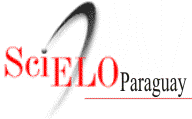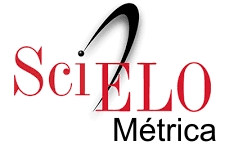Relationship between Emotional Intelligence and Transformational Leadership in Teachers of a Private University of Asunción
DOI:
https://doi.org/10.18004/ucsa/2409-8752/2024.011.03.072Keywords:
emotional intelligence, transformational leadership, teachersAbstract
This research consisted of demonstrating whether there is a correlation between Emotional Intelligence and Transformational Leadership in Teachers of a Private University of Asunción. The main theoretical approaches on which it is based are BarOn's Theory of Emotional Intelligence and Bernard Bass's Transformational Leadership Theory. The study was descriptive - correlational, mixed, non-experimental and non-probabilistic. The BarOn Emotional Intelligence Inventory and the CIELID Test to identify Leadership styles were applied to 51 teachers, as well as semi-structured in-depth interviews with 5 teachers and 31 teachers participated in the workshops (focus groups), in both cases men and women aged 25 to 60 years. The results show that there is no positive relationship between the variables of general emotional intelligence and general transformational leadership, but there is a positive correlation between age and the dimensions of the variables under study. In this way, it concludes by providing a more humanistic perspective of teaching performance, focused on the management of their emotions and a leadership that generates influence and change in their followers, situations that promote meaningful learning and relationships that focus on the interest of the group.
Downloads
References
Boyatzis, R., Goleman, D., & McKee, A. (2003). Liderazgo Primal: Realizando el poder de la inteligencia emocional. Harvard Business School Press.
Br. López, P. N. (2018). Inteligencia emocional y liderazgo transformacional en docentes de Colegios de la Provincia de la Oroya 2018. Universidad César Vallejo.
Castillo Armijo, P. E. (2014). Ejercicio del liderazgo pedagógico en el CEIP Llendoner comunidad de aprendizaje: un estudio de casos. Universitat de Barcelona. Disponible en https://www.tdx.cat/bitstream/handle/10803/286036/CASTILLO_ARMIJO_TESIS.pdf
Cifuentes Gil, R. M. (2011). Diseño de proyectos de investigación cualitativa. Noveduc.
Cooper, M., & Eastman, R. (2019). Inteligencia emocional. Biblia de maestría 7 libros en 1: inteligencia emocional cómo analizar personas terapia cognitiva conductual psicología oscura manipulación estoicismo eneagrama tipos de personalidad. Independently published.
Fromm, L. M. (2003). Inteligencia emocional en la relación pedagógica: bases para un currículo flexible. Universidad Pedagógica Nacional Francisco Morazán. Disponible en http://www.cervantesvirtual.com/obra/inteligencia-emocional-en-la-relacion-pedagogica-bases-para-un-curriculum-flexible/
Goleman, D., Boyatzis, R., & McKee, A. (2003). Liderazgo Primal: Realizando el poder de la inteligencia emocional . Harvard Business School Press.
Hernández Sampieri, R. (2014). Metodología de la investigación (6ta ed.). McGraw Hill.
Lepeley, M. T. (2003). Gestión y Calidad en Educación: Un modelo de evaluación. McGraw Hill.
Lewin, L. (2015). Gestión Educativa en Acción: Cómo desarrollar, motivar y liderar a tu equipo docente. Noveduc.
Maidana, A., & Samudio, M. (2018). Inteligencia emocional de docentes de Enfermería según aptitud demostrada en su entorno laboral. Medicina Clínica y Social, 2(2), 72-83. Disponible en https://doi.org/10.52379/mcs.v2i2.54
Makovský, P. (2017). Cómo llegar a ser un líder exitoso. Ligs University. Disponible en https://www.ligsuniversity.com/data/2017-07-25-03-26-31-Como-llegar-a-ser-un-lider-exitoso.pdf
Molina, N. (s.f.). Reflexiones sobre nuestra comunicación y cómo impacta en los demás. Disponible en https://nataliamolinapsi.com/blog/la-gente-nunca-olvidara-como-la-hiciste-sentir
Palella Stracuzzi, S., & Martins Pestana, F. (2004). Metodología de la investigación cualitativa. FEDUPEL.
Pariente, J. L. (2009). Algunas reflexiones en torno al concepto de liderazgo. Disponible en https://www.researchgate.net/publication/235985767_Algunas_reflexiones_en_torno_al_concepto_del_liderazgo
P & A Grupo (2020). ¿Cómo ser un buen líder de equipo? Disponible en https://www.grupo-pya.com/es/wp-content/uploads/sites/2/2020/04/Buen-l%C3%ADder-equipo.pdf
Rojas, S. (2016). La inteligencia emocional y el liderazgo transformacional de los docentes del I.E.P. Diego Thompson. Universidad César Vallejo.
Sánchez-Reyes, J. B., & Barraza-Barraza, L. (2015). Percepciones sobre liderazgo. Ra Ximhai, 11(4), 161-170. Disponible en: https://www.redalyc.org/articulo.oa?id=461/46142596010
Sardon, D. (2017). Liderazgo transformacional y gestión escolar en instituciones educativas. Revista de Investigaciones Altoandinas, 19, 295-304.














